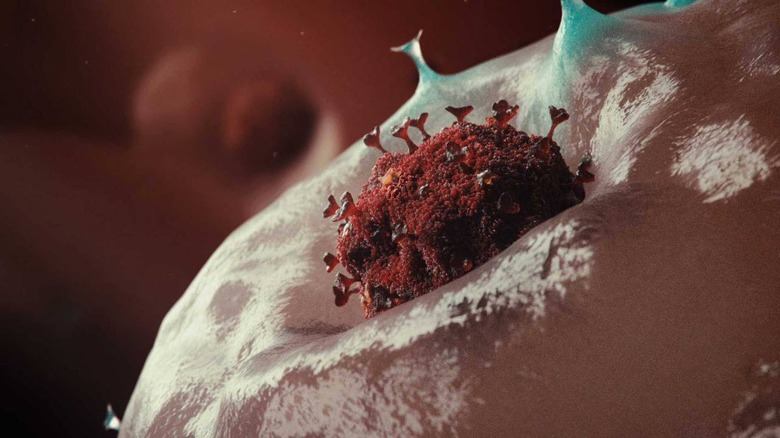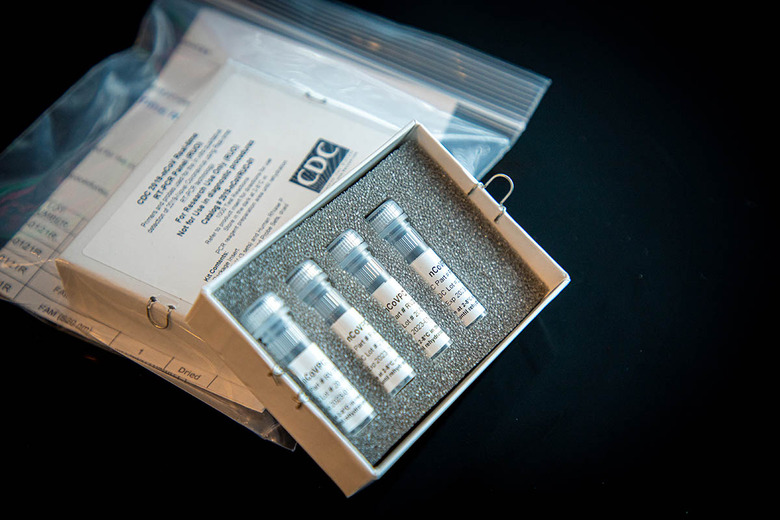CRISPR Coronavirus Test Promises Results In Under An Hour
A coronavirus test that could give results in under an hour has been developed, with the CRISPR-based SARS-CoV-2 DETECTR adding gene-targeting to the methods currently in use to track down COVID-19 infection. CRISPR – or "clustered regularly interspaced short palindromic repeats" – gene editing is better known for its controversial use in genetic engineering for things like diseases, which has triggered calls for it to be banned from labs.
Back in 2016, for example, Chinese researchers reported that they had successfully injected human subjects with cells that had been edited using a CRISPR technique. It came less than a year after legal challenges around the gene editing method, which other researchers have used to challenge HIV and other diseases.
At its core, though, CRISPR technology is all about targeting specific genes, and that makes it a potentially useful way of identifying COVID-19 infection. Researchers at the University of California, San Francisco, along with scientists at Mammoth Biosciences, have developed what they've called the SARS-CoV-2 DETECTR assay. It has been "programmed" to spot two target regions in the novel coronavirus' genome.

One of those regions is common to all SARS-like coronaviruses. The other, however, is unique to the particular SARS-CoV-2 currently causing the COVID-19 pandemic. "Testing for the presence of both sequences ensures that the new DETECTR tool can distinguish between SARS-CoV-2 and closely related viruses," the researchers say.
While there are numerous different types of coronavirus test both currently being used and being developed, they vary in how they operate. Some, for example, rely on the presence of the infected cells to spot whether a person is currently infected by COVID-19. Others use so-called serology methods to look for antibodies left behind by a prior COVID-19 infection. One of the most recent tests distinguished itself by using saliva as its sample, rather than more invasive swabbing of the throat or respiratory system. At-home coronavirus tests are also in development.
Where this new CRISPR-based test stands apart is its speed. A PCR-based test takes around four hours to come to a result from a respiratory sample. This DETECTR test requires around 45 minus, in contrast.
It's also more straightforward to run, the team of researchers promise. Rather than demanding specialized equipment, it uses off-the-shelf reagents and more common tools. Dark lines on the test strips indicate whether it's a positive result, with viral genes found, much in the same way that a pregnancy test strip is used.

Not everything about the DETECTR test is an improvement, mind. It's less sensitive than existing tests, the team concedes, able to spot as few as 10 coronaviruses in a microliter of sample fluid. PCR testing, in contrast, can detect as few as 3.2 coronaviruses. That could lead to a greater rate of false negative results, where individuals are told that they don't have COVID-19 but in fact are indeed infected.
According to the researchers, "the difference is unlikely to have a noticeable impact in diagnosis, as infected patients typically have much higher viral loads." There's also the fact that access to diagnostic testing is still a huge bottleneck in dealing with coronavirus spread. While the existing tests may best this new CRISPR-based one on accuracy, the workload involved in actually implementing them arguably isn't keeping up with the infection rate.
For the moment, the team at UCSF is working on validating the SARS-CoV-2 DETECTR so that it can be put into use under the FDA's emergency use authorization (EUA) scheme. That, the CDC said yesterday, has so far seen 36 authorizations for COVID-19 tests. More than 315 test developers overall have notified the FDA that they plan to submit EUA requests.
